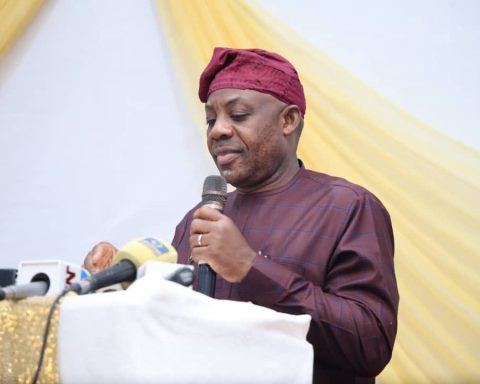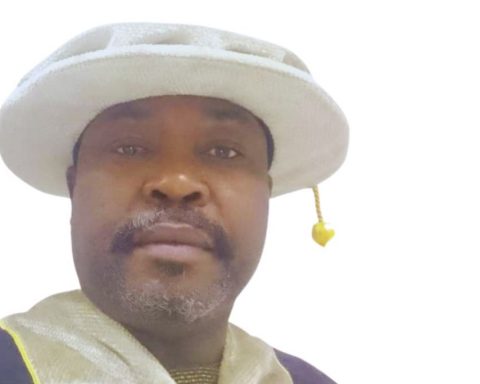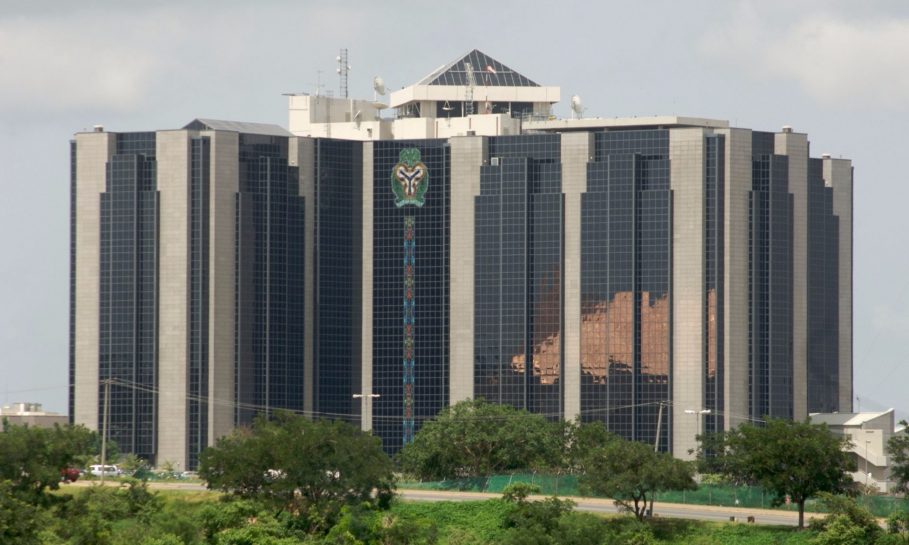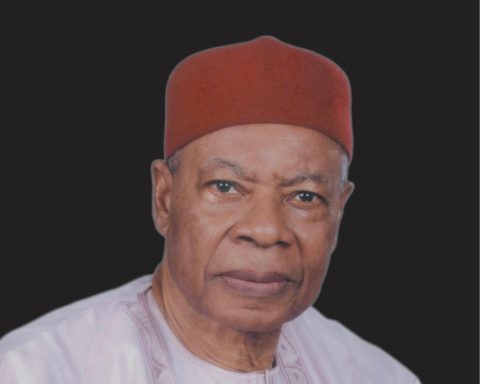After the flat failure of public primary and secondary schools in Nigeria, tertiary education is also in line for a catastrophic collapse. High student enrolment, crass inadequacy of resources, poor teacher motivation and reward, student disenchantment, dying academic values, poor funding, industrial actions, and the like create a bleak future for higher education in Nigeria, especially universities. While the lecturers cry out for attention to existing universities, the federal government keeps approving the take-off of new ones, many of which conduct educational activities in shambolic conditions.
As of August 2023, Nigeria has 260 universities made up of 51 federal universities, 61 state universities and 148 private universities. Of these, 12 were approved between April 2022, and 37 in May 2023. The then minister of Education, Adamu Adamu, while announcing the latest university approvals, attributed it to the importance of education to economic development, a comment seen as hypocritical in the face of the current reality.
Join our WhatsApp ChannelREAD ALSO: e-Naira: CBN Tasks Tertiary Institutions To Deploy For Tuition, Salaries
According to some estimates, only one in four applicants get admitted into Nigerian tertiary institutions as a result of shortness of admission space. This may be why the federal government continues to establish new institutions of higher learning, especially universities.
In addition, the severe neglect of polytechnics and colleges of education forces many Unified Tertiary Matriculation Examinations (UTME) applicants to opt for the universities. This compels some states to convert colleges of education and polytechnics to universities. In 2022, Lagos State turned Adeniran Ogunsanya College of Education, Ijanikin; Michael Otedola College of Primary Education, Epe; and Lagos State Polytechnic, Ikorodu, into universities. In Sokoto State, former Shehu Shagari College of Education is now a university.
Funnily, of the roughly two million undergraduate students in Nigerian universities in 2023, private universities have about 6%, state universities 30% and federal universities 64%. With this, a classroom for 37 students in some federal universities now crams about 400 students. Attendance taking in classes is gone, together with meaningful assessment, because the majority of students who wish to attend the lectures cannot enter the classroom. The dilapidation in Nigerian universities is mindboggling, resulting in many strikes by lecturers.
University Strikes As Poisoned Chalice
Between 1999 and 2023 (24 years), members of the Academic Staff Union of Universities (ASUU) went on strike 19 times, spending about 2,082 days, or five years and seven months, in the process.
In the Buhari years – between May 2015 and May 2023 – university lecturers spent 632 days (almost two years) on strike due to government neglect of the educational sector, especially government breach of the 2009 agreement between it and the ASUU. In the peak of the nearly eight-month strike in 2022, the University of Lagos branch chairman of ASUU, Dr Dele Ashiru, told journalists that 70% of the best experienced staff had left the country due to government neglect and disrespect for the university workers. As of August 2023, lectures of federal universities were being owed salary arrears of seven and half months because of the 2022 strike between February and October.
Poor Funding Keeps Universities Malnourished
Between 2016 and 2021, Nigeria budgeted N3.6 trillion for education out of a cumulative total of N55.3 trillion (about 6.5%). In 2023, Nigeria budgeted N1.79 trillion for the education sector, representing about 8.8 per cent of the total N20.5 trillion proposal. The 2023 education appropriation is significantly higher than the N875.93 billion proposed in the 2022 budget. However, it falls far short of the 15%-20% recommended by the United Nations Educational, Scientific and Cultural Organisation (UNESCO). Of the N1.79 trillion, N239 billion was reserved for capital expenditure, while N706.5 billion and N52.8 billion were for personnel and overhead costs respectively.
READ ALSO: University Degree Versus HND: Certificate Or ‘Sabificate’?
Of the N875.93 billion given to education in the 2022 budget, the sum of N355.47 billion was shared by the then 44 federal universities. According to BudgIT, a civil society organisation, N326.9 billion was earmarked for recurrent expenditure – N320.7 billion for personnel cost and N6.1 billion for overhead cost. This leaves a paltry N25.5 billion for capital projects out of the N355.47 billion allocated to the federal universities.
By contrast, the World Bank indicates that Ghana allocated 23.81% of its national budget to education in 2015, 22.09% in 2016, 20.1% in 2017 and 18.6% in 2018. South Africa progressively increased its education appropriation from R246 billion or 16.7 % in 2018, R310bn in 2019, R387bn in 2020 and estimates that it will reach R416bn by 2023/24. Ghana (33 million) and South Africa (59 million) account for less than half of Nigeria’s estimated population of 200 million.
Many Nigerian students are known to enrich other countries, such as Ukraine, Ghana, Russia, the US, the UK, etc., where they run to get quality education. According to the Institute of International Education in the US, Nigerian students spent about $514 million (about N2.5 trillion) on school fees in the country in 2021. Ghana raked in about N250 billion from school fees in 2022 from roughly 19,000 Nigerian students. The Central Bank of Nigeria has acknowledged that between 2010 and 2020, the country spent $28.66 billion on fees by Nigerian students in foreign institutions of learning, an amount that translates to an average of $2.86 billion a year.
Worker Morale Dies as Costs and Inflation Explode
This situation alone has damaged morale among lecturers, some of who complain of remaining in the same salary scale since 2009, when government last reviewed the salaries of workers. Unfortunately, in 2020, the federal government enforced an earlier introduced payment platform called the Integrated Payroll and Personnel Information System (IPPIS), which further reduced the pay package of workers. By 2023, the highest paid professor (on CONUASS Grade 7 Level 10) earns N416, 743 per month as net salary, which is roughly about $1000 in a country where average yearly rent is N500 thousand. For a lecturer in the University of Nigeria, Enugu Campus, simply identified as Edwin, a stringent university promotion requirement had kept him on the same position for 11 years between 2010 and 2021 as a senior lecturer. During this time, his salary increased from N250, 000 at the entry level to N301 thousand as a result of yearly increases based on rise in level. With the introduction of IPPIS, the salary fell to 278 thousand in 2020. This means that 11 years, he had an increment of N28, 000, during which a bag of rice rose from N750 to N35, 000. Yet, the other cadres of lecturers (graduate assistant to lecturer 2) earn anywhere from N100, 000 to N150, 000. Poor remuneration has affected the morale of staff, quality of output and general ethicality. Lecturers are daily seen hawking crayfish, clothes, beverage and meat in offices and school environments. Social media platforms of academics are online stores of some colour.
What about Facilities?
This same lecturer complained that to teach a faculty course of 1000 students, he managed to self-finance the procurement of a multimedia projector and fuelled his own electricity generator on many occasions, while the class contributed to procure a ‘sick microphone’. The lecturer is bemoaning the loss of two self-procured projectors as a result of jerks from the electricity generator. Where the universities made provisions for smart boards, they are not always accompanied with projectors, resulting in the smart boards being converted to marker boards on which lecturers write with permanent markers. And the laboratories? They exist in the realm of dreams in many departments. In others, they are in wanton disrepair.
The student population in places like the University of Lagos (45,000) is, on average, 5, 000 per faculty, if we work with 10 faculties per university. This also means that each of the 4 levels (barring 5- and 6-year courses) in a 10-department faculty will have an average of 500 students, facing an average of 23 lecturers, and seven technical staff. This means one 1 lecturer to 86 students, and one lab technician to over 285 students. In many private universities, a three-bedroom apartment in some cases are faculty buildings to take care of five departments, each of which has less than 0.5 classrooms to teach 45 courses to 1000 students.
In the area of hostel accommodation, a federal university in Nigeria, on average, is able to accommodate about 12% of its undergraduate students. The University of Nigeria, Nsukka, for instance, has about 14 functional undergraduate student hostels, each with an average of 60 rooms, making it about 840 rooms. Each of the rooms officially has six occupants, i.e., 5,040 students. This leaves the rest of almost 30,000 undergraduate students seeking self-rented accommodations within and outside the university. There are moderate as well as lush, well maintained, but very costly accommodations going for as high as N300, 000 yearly as opposed to university hostels, which charge between N15, 000 to N25, 000 yearly.
In many cases however, the ‘off-campus’ hostels look like refugee camps, centres for internally displaced persons, and profligate clubs, where cohabiting students revel in self-emasculating lifestyles steeped in debauchery and easy virtue. Afam, a pharmacy student in Uniuyo, who has experienced life in the university and ‘off-campus’ hostels, says that water supply, power and toilet facilities are better in ‘off-campus’ hostels, where students also have the opportunity to cook their food. Thankfully, the University of Nigeria, Nsukka, is currently undertaking an ambitious 12,000-room hostel complex within the university. Curiously, the project has faced hurdles, including court cases by the university’s host communities.
READ ALSO: Mixed Feelings For WAEC, UTME Top Performer, Kamsiyochukwu Umeh
In January 2022, students of the University of Uyo held the entire university hostage, while protesting against horrid hostel conditions. It was a similar condition in November 2020 when students of the Ogun State Institute of Technology held protests against poor healthcare facilities in the institutions, which reportedly caused the death of a year-one student of the Department of Computer Engineering, Yusuf Maleek.
We have Come Full Circle: Yesterday’s Student is Today’s Teacher
As it is, many poorly trained students since the last decade and half, are today’s lecturers, medical doctors and lab technicians. Some of them do not know the difference between a website and a social media platform. To many of them, who are barely literate people, substandard education is their only known learning experience. Ethics and research are gone, leading to a dramatic rise in sexual molestation of students and money-for-grade syndrome. Some students and lecturers have been heard glossing over exam malpractice and encouraging one another to help students who are not able to do their exams and assignments. To the few who resist the pressure of unethicality, there is increasing threats and pressure from students who want to pass at all costs.
Which Way Out?
In the July meeting of the senate of the University of Nigeria, Nsukka, some of these issues occupied the attention of the participants as they debated new set of rules to guide student and lecturer conducts. This was remarkable because the institution showed rare determination in confronting the odds. Whether the measures, if passed, will do enough to overturn the fast pace of educational disaster in Nigeria is still in the realm of guess, but a great process is on.
For a long time, especially before the era of the IPPIS, a typical Nigerian university devoted about 95% of its revenue to salaries in stark contrast to the 44% to 60% in the US and the UK. IPPIS and the Treasury Single Account came and further compromised university autonomy, making it hard for universities to govern the process of generating and keeping funds. In the 2022 budget, N22.57 billion was allocated to Ahmadu Bello University (ABU), N14 billion to UNILAG, N17 billion to the University of Ibadan, and N23.9 billion to the University of Nigeria Nsukka. Each of these universities will spend at least 1 million to train one student in one year, translating to N35 billion for UNN’s 35,000 students. With the 2022 appropriation of N23.9 billion, the University of Nigeria has a shortfall of about N11 billion.
To solve the funding issues in Nigerian universities, the student-based costing approach is a better way to calculate the actual cost of running a university, because it places the product (student training) at the centre of costing and it will automatically affect every other cost during budgeting for individual universities. This will be a good stead to know how much to charge as tuition, which has become germane with the current realties in terms of student population and the attendant resource needs. Universities need to generate more funds from other sources such as grants, research consultancies, public-private partnerships in businesses and donations from alumni. Government should aspire to meet up with the UNESCO requirement of 15% to 20% appropriation to education. Some experts advocate that the money should be paid directly into the Education Trust Fund every month for better disbursement.
University autonomy, as enshrined in law, should be allowed to run. Stiff conditions of account maintenance and centralization of staff salaries (in the name of (IPPIS) negatively impact employment of new staff and fund drives. TETFUND also needs a better management framework to monitor the use of its grants for research in the universities. This would normally need an independent body, which can also make decisions about other investment initiatives on TETFUND monies, for example raising bonds. Indeed, adequate autonomy for universities and the mechanisms for fund drive and management can turn the swelling student populations into multiple ethical revenue streams, with universities trying to outdo one another in infrastructure building to attract more students. Investors, too, can sponsor hostels and laboratories, in a partnership arrangement that will benefit the university and the sponsors. Departments can seek the help of alumni members to develop teaching material as well as to improve on the capacity of lecturers. The latter should use their free time to seek grants, research collaborations and lecture material that can add to their monthly income. Indeed, all that now count as negatives to Nigerian universities such as high student enrolments can actually be sources of strength to the universities. Sincerity of purpose on the part of government, ASUU and university management means a lot.
Dr Mbamalu is a veteran journalist, Editor and Publisher
Follow on Twitter: @marcelmbamalu












This is nice Sir. More ink to your pen. I love the flow.